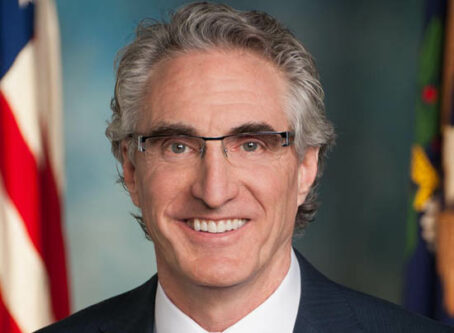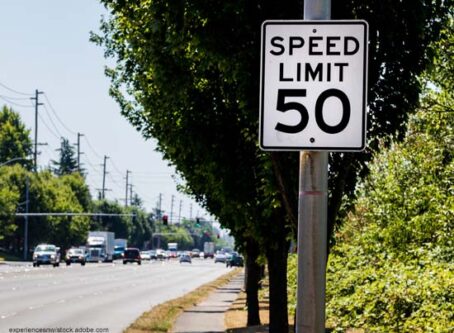Connecticut truck-only toll pursuit delayed
The pursuit of truck-only tolls in Connecticut has been delayed.
Gov. Ned Lamont announced late last week plans to sideline until next month a special session to consider legislation to place the burden squarely on professional drivers for road and bridge upkeep.
Specifically, the Democratic governor and the state’s majority party are advocating for a plan to collect truck tolls on 12 bridges around the state.
“In January 2020, we will convene a special legislative session to address a bonding bill and a long-term plan for Connecticut’s infrastructure,” Lamont announced in prepared remarks. “We are committed to investing in transportation without recklessly raiding the rainy day fund.”
Toll plan
Gov. Lamont has been active his first year in office to come up with a plan to collect tolls.
Along the campaign trail in fall 2018 Lamont touted a truck-only toll before revising his plan to include an all-electronic toll on all highway users.
His party leaders resisted the grand tolling scheme. Instead, Senate Democrats opted in recent weeks to single out large trucks for new revenue.
The governor quickly backed his party leaders’ call for truck-only tolls. Lamont has since released details of a plan that calls for large trucks to pay an average toll of $8 each way on 12 bridges.
The most expensive toll locations in Connecticut would be the Gold Star Memorial Bridge on Interstate 95 between Groton and New London and the Charter Oak Bridge on I-91 in Hartford. According to details released by Lamont, the base rate for trucks with a transponder would be $12.80. All other trucks would be charged $19.20.
State officials say the toll plan could generate $180 million annually after municipalities are paid a 5% share of the revenue, starting in fiscal year 2023.
Possible stumbling block?
The biggest potential roadblock for Connecticut’s toll plan is an ongoing legal challenge that Rhode Island’s truck-only tolls are a violation of the U.S. Constitution.
A federal court this month reversed a lower court decision to dismiss the case brought by the American Trucking Association. The decision by the U.S. Court of Appeals for the First Circuit states that Rhode Island must face the challenge that tolls are not taxes in federal court.
Lamont says he is not concerned about the court action.
“This federal circuit court decision, which is not binding in Connecticut, has simply held that truckers may bring their meritless claims in federal court as well as state court,” Lamont stated. “I am confident that the legal arguments for truck tolls will prevail.”
Republican opposition
Connecticut’s minority party has been defiant about the governor’s truck-only toll plan. In light of the federal court’s decision, GOP lawmakers say it is imperative the governor drop his tolling pursuit.
“The court’s decision gives credence to the trucking industry’s challenge,” Senate Republican Leader Len Fasano said in previous remarks. “It ties up this issue in litigation for years to come, leaves doubt and uncertainty in the ability to toll only trucks, and creates significant economic risk for taxpayers.”
In light of Lamont’s steadfast support for tolls, Fasano questions why the governor is delaying a vote on the issue.
“Why are we delaying a vote on improving transportation, something the governor has said is so important it cannot wait any longer.”
Fasano added that if Democrats don’t have the votes to approve truck-only tolls, “they need to be honest with the public.”
Instead of tolls, GOP legislators are calling for tapping the state’s “rainy day” funds to cover transportation costs. Using the state’s budget reserves would allow the state to pay off pension liabilities to free up $130 million annually that could be used for transportation.
Additionally, the party wants to see the Special Transportation Fund overhauled to become more efficient with existing revenues.
Lamont says he is opposed to the Republican plan because it “not only gives (truck drivers) a free pass, it asks Connecticut taxpayers to foot the bill and jeopardize the state’s future by raiding $1.8 billion from the rainy day fund.”
OOIDA challenges claim about truckers
The Owner-Operator Independent Drivers Association is among the truck groups opposed to efforts to single out professional drivers to foot the bill for transportation improvements.
Mike Matousek, OOIDA manager of government affairs, has communicated to Connecticut Senate President Pro Tem Martin Looney the Association’s concerns about comments made about many professional drivers “currently paying nothing” to use the state’s roadways.
“We would remind you that Connecticut collects fuel tax and registration revenue from every out-of-state truck for every mile they run on Connecticut highways through apportioned funds from the International Fuel Tax Agreement and the International Registration Plan,” Matousek wrote. “Not only is your statement factually wrong, it also indicates that you know very little about the trucking industry.”
OOIDA encourages elected officials at every level of government “to learn more about the trucking industry before trying to enact laws and regulations that will have a significant impact on the men and women who literally drive our economy.”









